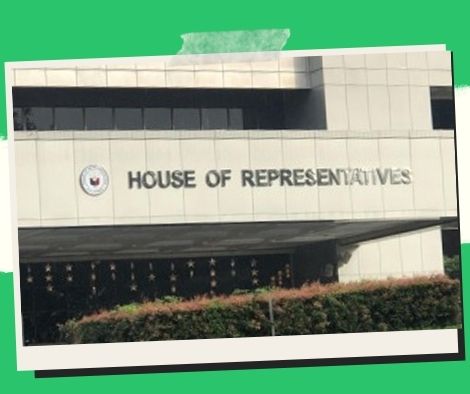
E-governance and bills regarding evacuation centers are approved by the House.
After passing through the House of Representatives on its third reading, a priority measure that institutionalizes the government’s transition to e-governance for the faster and better delivery of services to the people is inching its way toward becoming law.
House Bill (HB) 7327, which aims to institutionalize the government’s transition to e-governance in the digital era and establish the Philippine Infostructure Management Corp., was approved by 304 MPs during the plenary session on Monday.
Only 4 legislators opposed the bill.
As stated in his first State of the Nation Address, President Ferdinand Marcos Jr. prioritized passing the measure in Congress.
The primary author of the law, Speaker Martin Romualdez, stated that its goal is to increase public access to government services.
“The law would make it simpler for consumers to conduct business with the government and use its services online. According to Romualdez, it would improve the effectiveness, efficiency, and transparency of service delivery.
Senior Deputy Majority Leader and Ilocos Norte Representative Ferdinand Alexander Marcos and Tingog Party-list Representatives are his co-authors of the bill. Jude Acidre as well as Yedda Marie Romualdez.
Tobias Tiangco, chair of the House Committee on Information and Communications Technology, who is also the measure’s sponsor, claimed that the digitalization of services is the most effective way to close the gap in the delivery of public services.
E-governance, according to Tiangco, is simply the “technology-enabled transformation” of government and the move of citizen services online.
“Our little representative firmly feels that it is past due to pass legislation mandating the conversion of all governmental organizations to digital platforms. And in order to address the issue of lengthy service delivery and increase the effectiveness of all government offices, e-governance is a better, if not the best solution. It will provide time-bound and cost-effective service delivery, as well as transparency in the work for both the government and the citizenry “Tiangco remarked
A policy to “create, foster and sustain a digitally empowered and integrated government that provides secure, responsible and transparent citizen-centered services and harnesses the potential of open data for promoting economic growth and a globally competitive Filipino nation” is what the proposed legislation seeks to do.
It would “encourage the use of the internet, information and communications technology (ICT), and emerging technologies within and across government agencies to provide citizen-centric government information and services and improve the public trust and citizen participation in government,” among other things.
The main agency charged with carrying out the proposed law will be the Department of Information and Communications Technologies (DICT).
The creation of an E-Government Master Plan, which will serve as the guide for the creation and improvement of all electronic government service procedures, is the responsibility of the DICT.
According to the proposed law, all agencies involved in providing services such as permits, licenses, and clearances, as well as other documents and transactions needed for both business and non-business purposes, shall be integrated into a single portal, mobile application, or comparable platform in order to maximize efficiency.
It orders all organizations—including local governments—to regularly upgrade their websites and set up an electronic bulletin board for the exchange of information.
To administer government ICT assets, such as infrastructure, platforms, and software, the Philippine Infostructure Corp. would be established. The corporation will have a 5 billion PHP authorized capital.
complete emergency shelters
In the third and final reading, House Bill 7354, which aims to create “fully-equipped and fully-operational evacuation centers” throughout the nation, was also adopted by the House of Representatives by a vote of 307-1.
The proposed measure states that the evacuation centers to be built must offer immediate and temporary housing for people who have been forced to flee because of calamities, disasters, or other emergency events like typhoons, floods, storm surges, drought, and other severe climate disturbances, as well as fire, the outbreak of illnesses and diseases, and other emergencies that pose an immediate threat to life and property.
The bill also stipulates that existing buildings that can be modified to effectively function as evacuation centers or that can meet the necessary minimum requirements may be classified as such in accordance with the local government unit (LGU) in question.
To determine which locations should receive top priority for the construction of new evacuation centers, the National Disaster Risk Reduction and Management Council (NDRMC) and local executives of provinces, cities, and municipalities are assigned with this responsibility.
The NDRRMC shall create a priority list of LGUs seeking evacuation centers after consulting with the chief executives of LGUs.
An LGU on the priority list is permitted to upgrade schools or other existing structures used as evacuation centers by bringing them into compliance with the bare minimum requirements, such as location and structural capacity, when there is no available site where the government can build a new evacuation center.
In order to coordinate the design requirements, budget projections, and construction specifics of the evacuation facilities that will be built in accordance with this Act, the NDRRMC must work with the Department of Public Works and Highways and the Department of Science and Technology.
The operation, administration, and management of evacuation facilities shall fall principally under the purview of the LGU in question under the measure.
According to HB 7354, the initial cost associated with building and maintaining multipurpose gyms will be deducted from the DPWH budget allocated for this purpose.
On the other hand, the Department of Education’s appropriations will be utilized to cover the costs of building and maintaining new facilities for schools that are already being used as evacuation centers. The next year, any sums required for the ongoing implementation will be incorporated into the General Appropriations Act.
Save/Share this story with QR CODE
Disclaimer
This article is for informational purposes only and does not constitute endorsement of any specific technologies or methodologies and financial advice or endorsement of any specific products or services.
📩 Need to get in touch?
Feel free to Email Us for comments, suggestions, reviews, or anything else.
We appreciate your reading. 😊Simple Ways To Say Thanks & Support Us:
1.) ❤️GIVE A TIP. Send a small donation thru Paypal😊❤️
Your DONATION will be used to fund and maintain NEXTGENDAY.com
Subscribers in the Philippines can make donations to mobile number 0917 906 3081, thru GCash.
3.) 🛒 BUY or SIGN UP to our AFFILIATE PARTNERS.
4.) 👍 Give this news article a THUMBS UP, and Leave a Comment (at Least Five Words).
AFFILIATE PARTNERS

World Class Nutritional Supplements - Buy Highest Quality Products, Purest Most Healthy Ingredients, Direct to your Door! Up to 90% OFF.
Join LiveGood Today - A company created to satisfy the world's most demanding leaders and entrepreneurs, with the best compensation plan today.



 Business Technology, Finance Technology & Information Technology
Business Technology, Finance Technology & Information Technology





